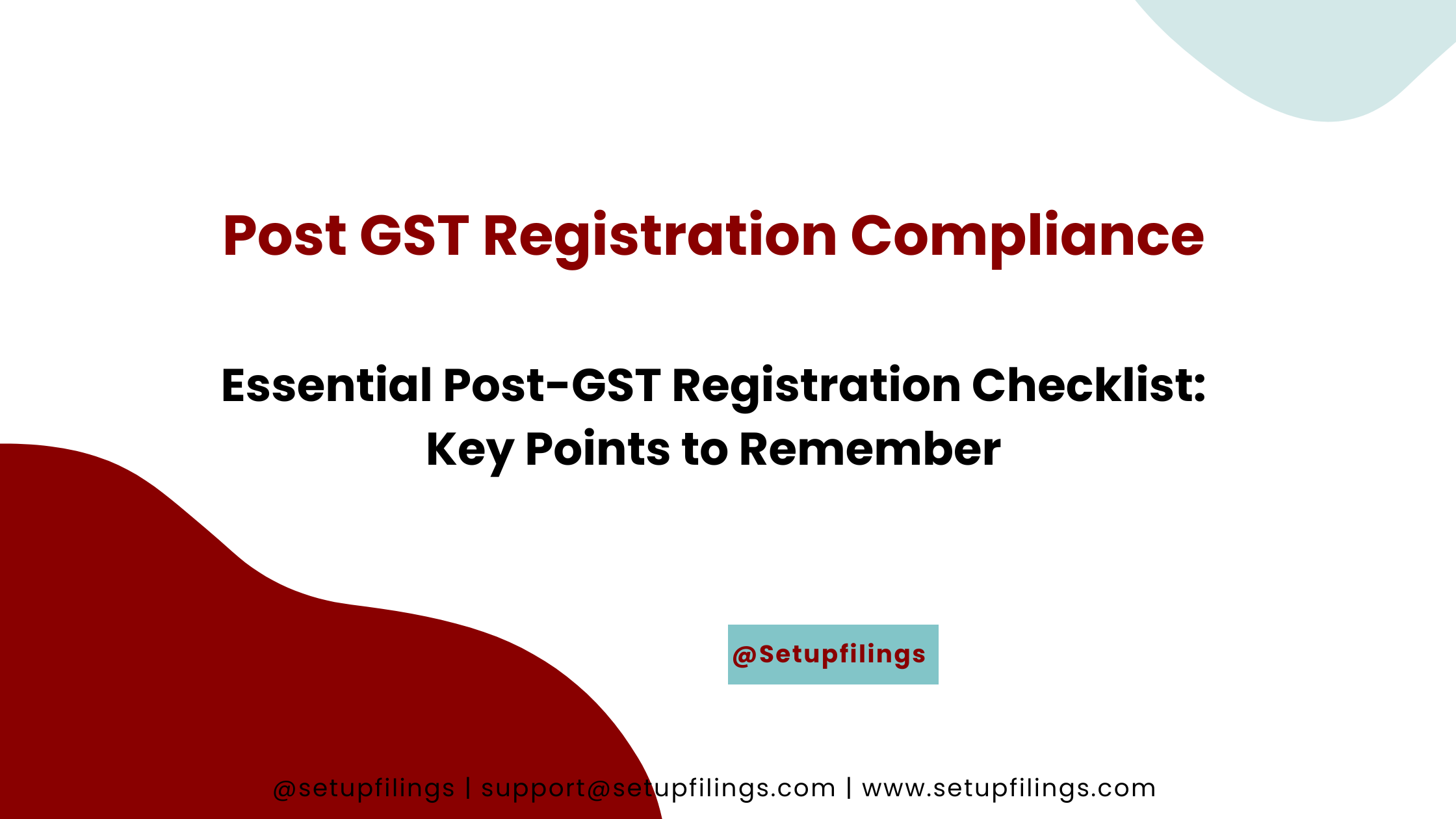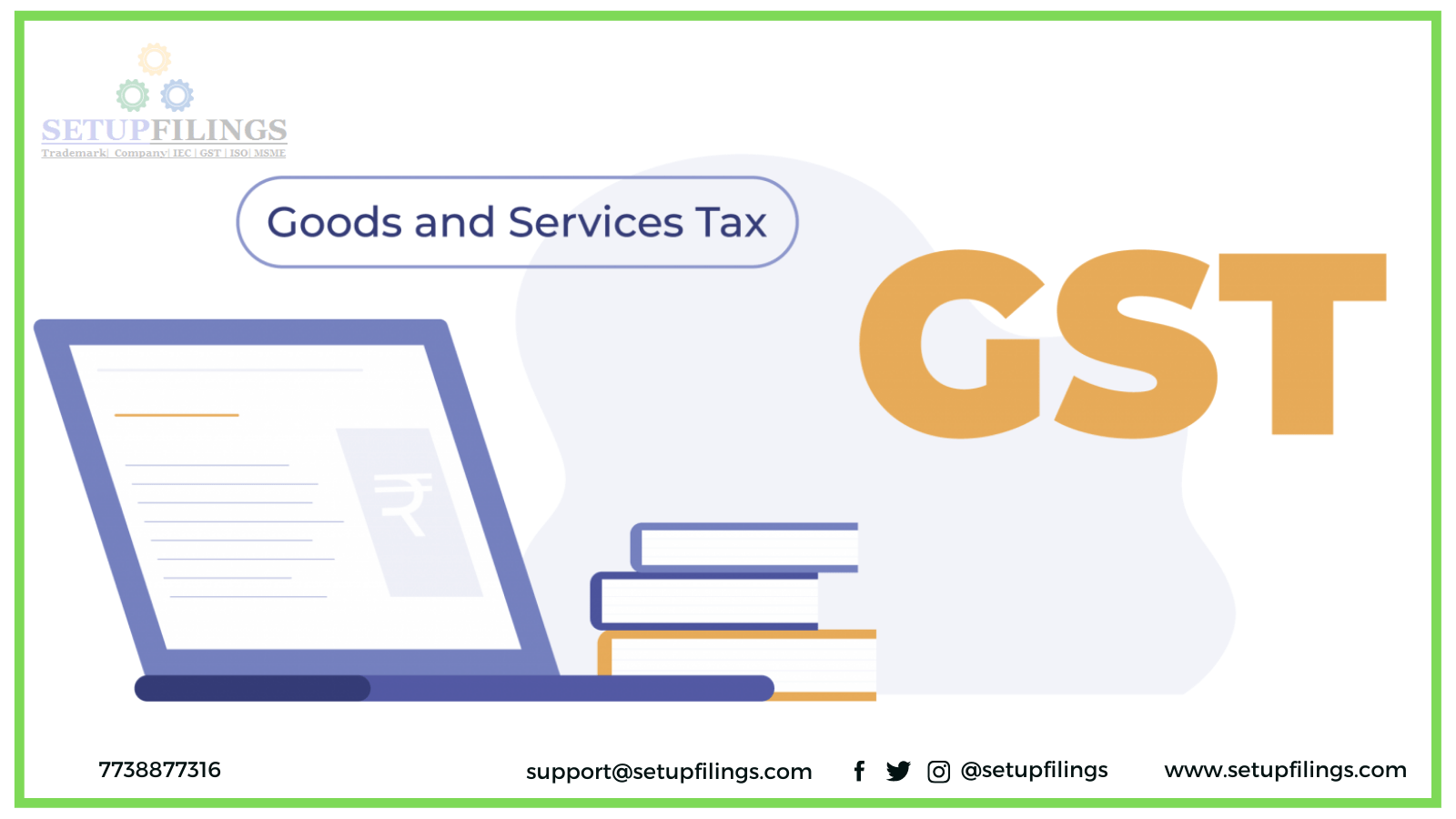
Essential Post-GST Registration Checklist: Key Points to Remember
After GST (Goods and Services Tax) registration, there are several important things to remember to ensure compliance with the tax regulations and smooth operations.
Here are some key points to consider:
Display of GSTIN: Display your GST Identification Number (GSTIN) at a prominent place in your business premises. This helps customers, suppliers, and authorities to identify your registration status.
Tax Invoicing: Issue GST-compliant tax invoices for all taxable supplies of goods or services. Ensure that the invoices contain all the required details as per GST rules, such as your business name, address, GSTIN, invoice number, date, customer details, description of goods or services, taxable value, and applicable tax rates.
Record Keeping: Maintain proper records of all your business transactions, including invoices, purchase bills, expenses, and other relevant documents. Retain these records for at least six years as per GST regulations.
Filing GST Returns: File your GST returns on time. The frequency of filing depends on the type of business and turnover. Typically, businesses file monthly, quarterly, or annual returns. Ensure accurate reporting of your sales, purchases, and tax payments in the returns.
Input Tax Credit (ITC): Keep track of your eligible Input Tax Credit. Ensure that you claim ITC only for GST paid on inputs used for business purposes and according to the rules prescribed by the GST law. Maintain proper documentation to support your ITC claims.
Tax Payment: Pay your GST liability within the due dates to avoid penalties and interest. Calculate the tax liability accurately, including the applicable tax rates and the correct valuation of goods or services.
Amendments: If there are any changes to your business details, such as address, contact information, or business structure, update the GST registration information accordingly using the GST portal.
Compliance with GST Rules: Stay updated with the changes in GST regulations, notifications, circulars, and clarifications issued by the government. Comply with the rules and procedures to avoid penalties and other legal consequences.
Input Service Distributor (ISD): If you have multiple branches or units, consider registering as an ISD. This allows you to distribute the input tax credit proportionately among the units and streamline the ITC utilization.
GST Audits: Be prepared for GST audits by maintaining accurate records, complying with the GST law, and having the necessary supporting documents readily available. GST authorities may conduct audits to verify compliance and ensure the correctness of your GST filings.
Remember, it’s crucial to consult with a qualified tax professional or GST expert to understand the specific requirements based on your business activities and the applicable GST laws in your country or region.
Visited 45 Times, 1 Visit today




